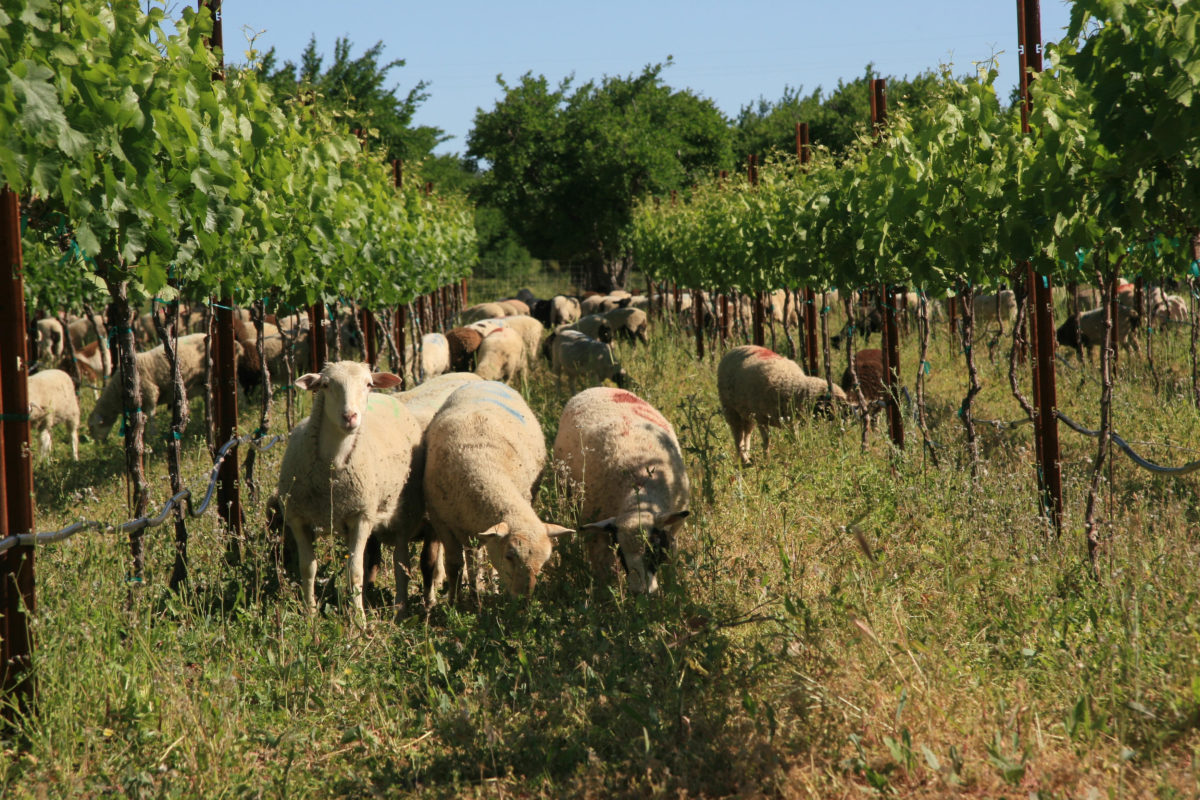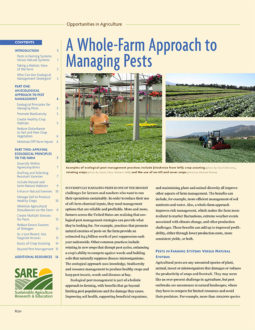Integrating livestock into cropping systems can bring many benefits to the farm. Increasingly, farmers are coming to view grazing sheep as an effective way to manage weeds and cover crops instead of chemicals, tillage or mowing. For example, sheep can replace the use of herbicides or mowing to manage floor vegetation in vineyards and orchards. They are also being used by hops growers not only to manage weeds, but also to eat the lower leaves of hops plants. This opens up air flow and can help with disease management.

Adding a flock of sheep to the operation represents an opportunity to diversify, but if this isn’t feasible, there might be sheep farms in your area willing to rent out their herd. Important considerations when grazing with sheep include the need for regular rotations, temporary fencing and protection against predators. Also, make sure sheep cannot eat the crop itself, which is critical to vineyard managers, for example. University of California livestock specialists partnered with vineyard managers and sheep managers in a SARE-funded project to develop workable grazing strategies for both weeds and cover crops (FW08-315). The team focused on aversion training, or teaching sheep to avoid eating grape leaves while grazing on weeds and cover crops. Dwarf breeds are another option.
Sheep can also be used to manage weeds and cover crops in field crop systems. The SARE fact sheet Sheep Grazing to Manage Crop Residues, Insects and Weeds in Northern Plains Grain and Alfalfa Systems describes how sheep can be used to graze crop residue and summer fallow as a way to control alfalfa weevils and improve residue management without the use of chemical inputs. Separate research at Montana State University looks at how sheep can be used to terminate cover crops in organic wheat systems instead of tillage, which oftentimes leads to soil erosion problems. Because of their small size, sheep cause less compaction than cattle and are easier to transport. (Watch a short video summarizing this research and a webinar.)
